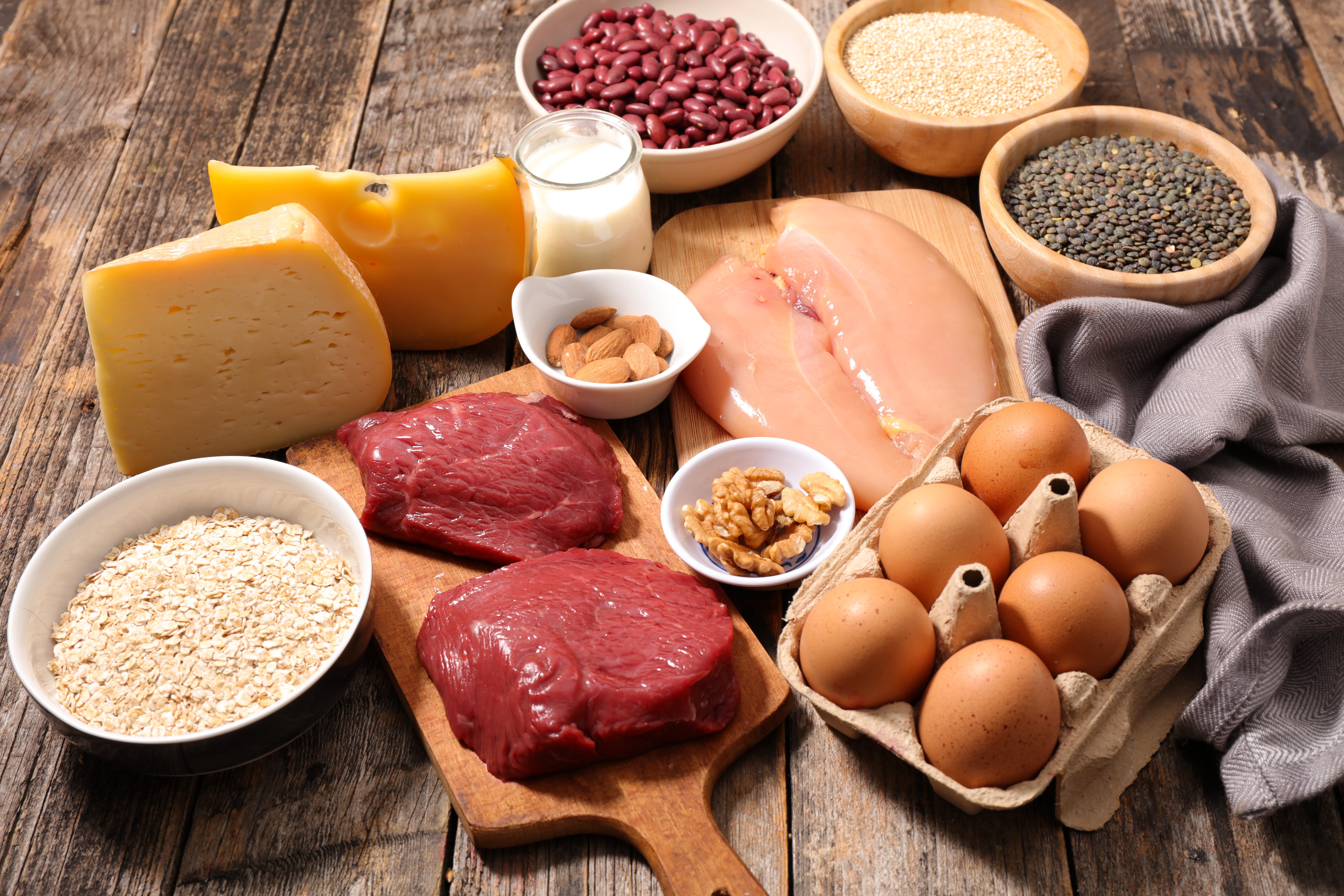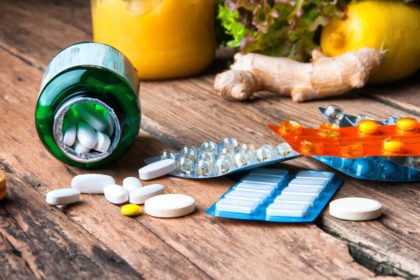UPDATE: You resolved to work out and build a better, stronger body this year. You’ve probably heard the regulars at the gym talk about the protein shakes they drink after a workout to pack on more muscle. Protein drinks are on the rise and generating huge profits, but do you know how much protein you actually need and that TOO much can age you? Weekend anchor Marty Gonzalez on KRON 4 Morning News Weekend talks with me to get some answers.

Protein is an important component of your diet and is necessary to build and maintain all types of body tissue, such as your skin, neurons, organs, and muscle. (Your heart is a muscle too.) Here’s how to determine your protein needs per day.
IMPORTANT NOTE: If you have a medical condition, such as chronic kidney disease or cancer, it’s essential to consult a registered dietician for your specific dietary requirements. Some dietitians specialize in kidney disease (renal dietician) or cancer (oncology dietician).
Determining Protein Needs Per Day
- Age 19 to Adult: 0.8 grams of protein per kilogram (kg) of body weight
- Competitive athletes: 1.2 to 1.5 grams per kg
- Adults 65 and older: 1.2 to 1.4 grams per kg
- Child: 0.85 to 1.3 grams per kg
- Infants: 1.5 grams per kg
Protein Math
To determine your weight in kilograms, divide your weight in pounds by 2.2. For example, if you weigh 165 pounds, your weight in kilograms (kg) is 165 divided by 2.2 = 75 kg.
- For a 165-lb adult (75 kg): 75 kilograms x 0.8 = 60 grams protein needed per day
- For a 200-lb. 65-year-old adult (91 kg): 91 kilograms x 1.2 = 109 grams protein
Protein Sources
- 4 oz. chicken breast: 35 grams of protein
- 3/4 block of tofu: 34 grams
- 4 oz. chicken thigh: 30 grams
- 4 oz lean ground beef: 28 grams
- 1 cup cooked soybeans: 22 grams
- 3/4 cup Greek yogurt: 18 grams
- 1 cup kidney beans: 15 grams
- 1/4 cup nuts: 7 grams
- 1 egg: 6 grams
Notice that a chicken breast contains more protein than a chicken thigh or lean ground beef. That’s because there is a higher percentage of fat, and thus less protein, in 4 ounces of thigh meat and beef.
Protein Supplements: When avid exercisers and body builders think about maximizing muscle, most of them think protein and overload on protein supplements (e.g., protein shakes, bars, and capsules) — which can be pricey. Why Supplements Can Make You Sick
The Aging Effects of Too Much Protein
Bone Loss: The effects of aging in your bones can be the result of eating too much protein. If you consume excessive protein over the long term, it can cause calcium to be excreted from your bones, increasing your risk of osteoporosis — a condition of brittle, fragile bones that is most common among older menopausal women as well as men and women on certain cancer drug therapies.
Kidney/Liver Dysfunction: Consuming too much protein can overwork your vital filtration organs. Diabetics or others with kidney disease or liver damage can also experience further complications with excess protein. Worse yet, there are a lot of people who are undiagnosed pre-diabetics and unaware that their kidneys aren’t fully functional. Without a healthy liver and kidneys, your body accumulates a buildup of toxic waste resulting in an aging and unhealthy body.
Stiff Heart and Arteries: Remember that many high-protein foods, particularly from animal sources, contain an abundance of saturated fat that contribute to hardened arteries and can lead to an aging heart, brain, and blood vessels. These serious medical conditions can lead to dementia, heart attack, and stroke.
Symptoms of Consuming Excess Protein
- Fatigue
- Headache
- Dizziness
- Heart palpitations
- Bloating
- Nausea
- Bad breath
![]() Karen’s Fit Tip: Protein is only one of several essential nutrients, so don’t overlook other nutrient-dense foods, such as fruits, vegetables, and whole grains. Fill half your plate with non-starchy vegetables, one-quarter with protein, and the remaining one-quarter with whole grains or starchy vegetables. Add a piece of fruit at each meal or as a between-meal snack.
Karen’s Fit Tip: Protein is only one of several essential nutrients, so don’t overlook other nutrient-dense foods, such as fruits, vegetables, and whole grains. Fill half your plate with non-starchy vegetables, one-quarter with protein, and the remaining one-quarter with whole grains or starchy vegetables. Add a piece of fruit at each meal or as a between-meal snack.





